I'm an American who visited Japan for the first time. Here are 13 things that surprised me the most.
I went from the US to Japan for the first time in 2018 and some things surprised me.
In Japan, it is not the norm to eat or drink on the subway or while you walk.
Indoor smoking laws in Japan are more laid-back than those in the US.
There isn't as much free public Wi-Fi as you'd find in some parts of the US.
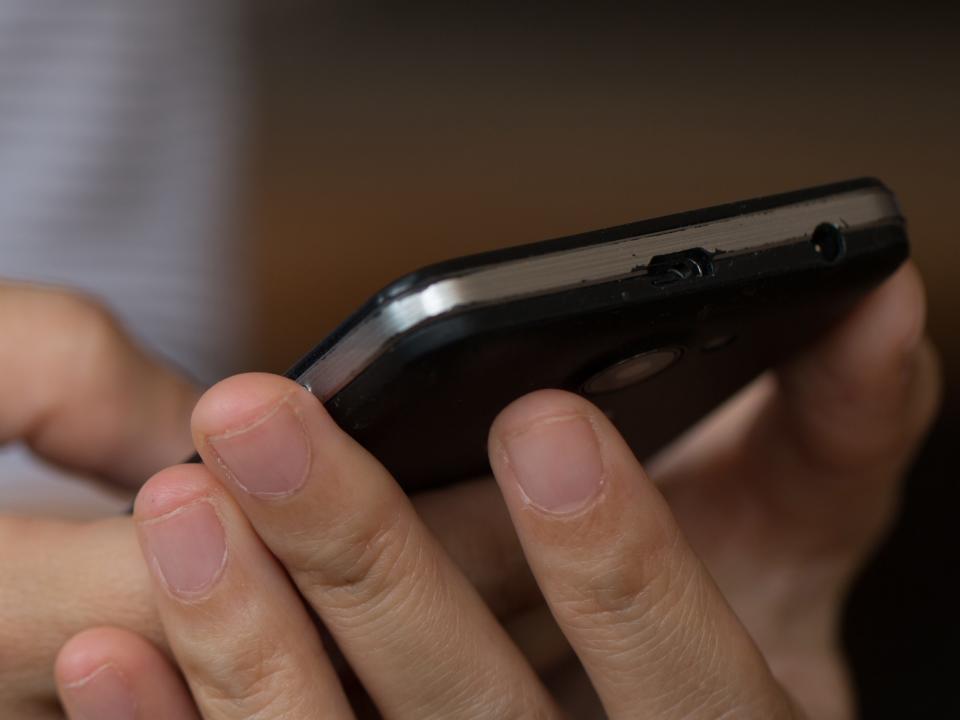
Free Wi-Fi isn't as readily available in Japan as it is in the US, but the country has several great options for getting internet access if you don't have an international phone plan. The most helpful piece of technology I rented in Japan was a pocket Wi-Fi.
A pocket Wi-Fi is exactly what it sounds like — it's a handheld Wi-Fi device with enough juice to power several phones and even a laptop or two. With one pocket Wi-Fi, I was able to use data on two phones and a laptop.
I rented one online before my trip, picked it up at the airport, and dropped it off at the same place on my way home. For a 10-day trip, my 1 GB-per-day Wi-Fi rental cost me $55.
The smoking laws are more laid-back than they are in the US.

In the US, smoke-free laws generally prohibit people from smoking at most indoor locations. So, when I was in Japan, I was surprised to find people smoking inside of restaurants and bars.
Smoking laws are generally more relaxed in Japan than they are in the US, so it's important to do a bit of research if you want to find smoke-free restaurants.
Tipping isn't necessary.
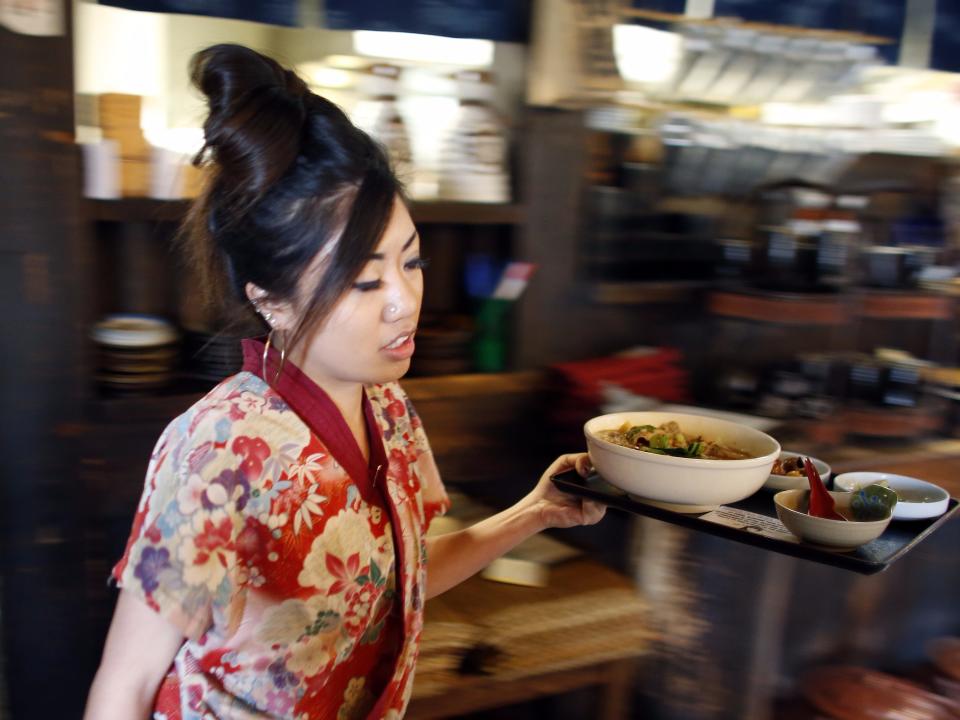
Like many other countries, Japan doesn't participate in the tipping culture. In some cases, it can even be considered rude to tip your server.
However, because you aren't expected to tip, there is often a table charge, a cover charge, or a mandatory appetizer fee.
Sometimes the restaurant doesn't tell you that there's a table charge, but if they set a small appetizer on the table that you didn't pay for, then you know to expect a table fee on your bill. Most of the table fees I was billed were about 300 yen (less than $3). Casual lunch spots, like ramen shops, that I visited generally didn't have a table fee.
There are very few public trash cans in Japan.

I saw very few public trash cans in Japan, even though it is one of the cleanest countries I've ever visited. I noticed that people seemed to hold onto their trash until they were able to dump it at home, at a subway station, or at a coffee shop.
I got into the habit of traveling with a small plastic bag in my purse or backpack to collect the trash I amassed throughout the day.
Taxis can be expensive and they're not overly popular during the daytime.
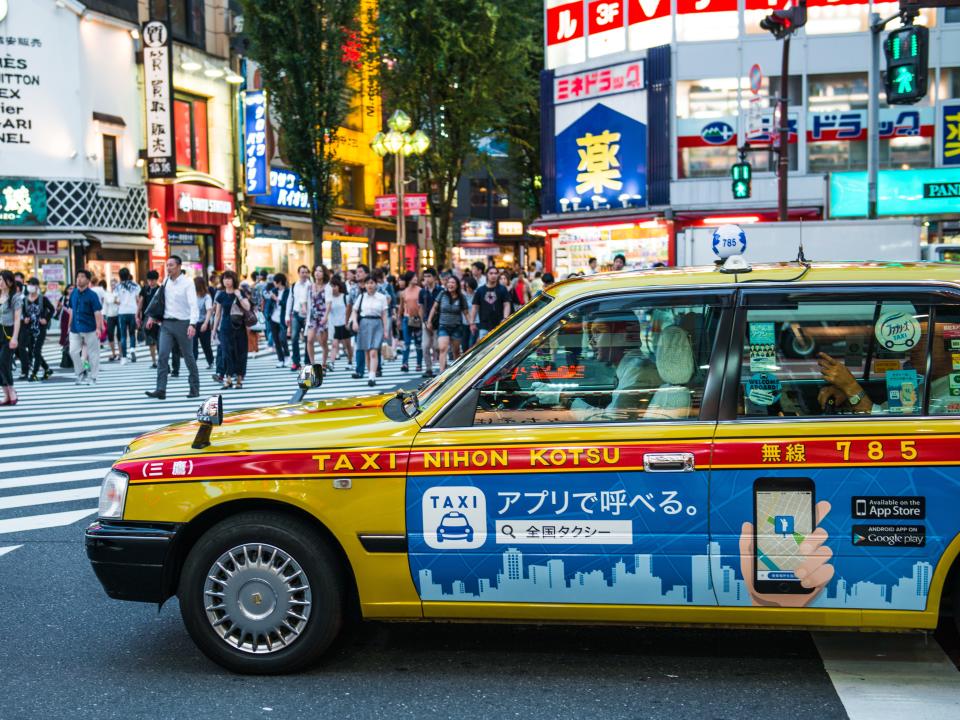
The public transportation in Japan, especially Tokyo, is very efficient and broad. For this reason, very few people take taxis during the daytime.
However, the subways stop running at midnight so if you need to take a taxi during your trip, be prepared for the cost — which is higher than the cost in the US. I took a two-minute taxi ride in Kyoto that cost 1000 yen, which is almost $9.
Japan-Guide says the taxi meter typically starts at around 400 to 700 yen, which roughly amounts to $3 to $6. For comparison, taxicab fares in New York City start at $3.30.
It's a bit difficult to find and buy over-the-counter medicine in Japan.
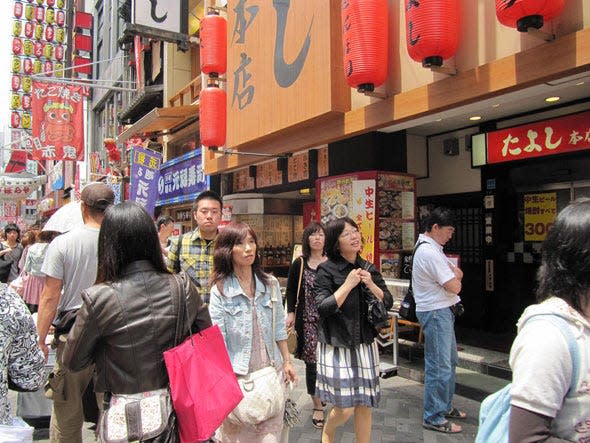
Heavy-duty cold medicine is available at Japanese pharmacies and drug stores, but if you aren't confident with your translation skills, I suggest stocking up on your favorite cold meds, sleeping aids, and digestive needs before you leave the US.
Also, unlike in America where you can buy ibuprofen at a gas station or from a vending machine, ibuprofen and acetaminophen can only be purchased at pharmacies.
The subway is owned by multiple private companies.

The subway is one of the fastest ways to travel and I fell in love with its cleanliness, speed, and efficiency. But, it can also be a bit confusing for someone who isn't from Japan.
The Tokyo subway system is operated by several different companies (Japan Railways, Tokyo Metro, and Toei Subway).
The most convenient option is to buy an IC card (a subway card, basically) and load it up as you go because the IC card works on any rail line.
If you want to pay piecemeal for each trip, you might have to buy separate tickets for each transfer if you're switching between rail companies. But, if you get an IC card (which you can buy in any subway station), you won't even notice when you're switching rail companies — you can just swipe and go and mix and match rail lines to your heart's content.
There are women-only subway cars.
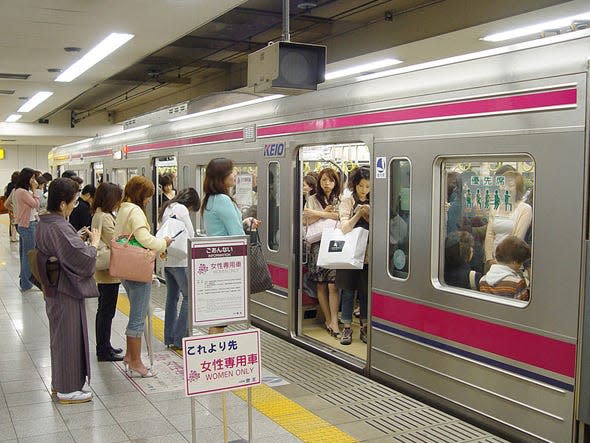
In an attempt to protect women from sexual harassment, the Tokyo subway system enacted women-only subway cars on early morning and late-night rides. You can find these cars by following the fuchsia signs in the stations.
The Japan Rail Pass isn't a great deal for everyone, so you want to map out your trip before you buy it.

If you book a flight or hotel online, you'll start to notice internet ads for something called the Japan Rail Pass or JR Pass. This is a train pass that allows you unlimited rides on any Japan Rail lines.
You have to pre-order the JR Pass before you arrive in Japan. This unlimited pass starts at about $251 for a seven-day trip and it's typically only worth buying if you're planning to take at least two cross-country train rides.
For example, the only time I rode a JR train was to get from Tokyo to Kyoto and then to the airport, which cost roughly $145 total. Had I purchased the JR pass, I would have spent about $100 more than I needed to.
Now, if you're planning a cross-country trip by train and want to see several Japanese cities and/or you need a round-trip train ticket from Tokyo to Kyoto, then a JR Pass could be a great deal.
People generally don't seem to eat or drink on the subway.

The Japanese subways were some of the quietest and cleanest subways I've ever experienced and it might be because riders seemed to follow the rules.
While I was there, I noticed no one was eating or drinking on the subway. Also, nobody was speaking on their phone. For these reasons, taking the subway was a fairly pleasant experience.
Many see eating and walking as being inconsiderate to those around you.

Walking while eating can be seen as rude because certain food smells might bother your fellow pedestrian.
Some places like Nishiki Market in Kyoto sell street food but still have signs warning you against walking while eating, so most people grab their street food and then consume the food while standing outside of the vendor they purchased it from.
Unexpected hotel fees might appear on your bill.

I'm used to hidden resort fees at hotels in the US, but I was surprised to learn about a per person, per night additional fee paid directly to the hotel in Japan.
This "accommodation tax" is in addition to the normal city tax and any other hotel fees. In my case, it was between 200 and 500 yen per person per night, so it wasn't a huge burden, but it's something to budget for especially since it's not usually listed on international booking sites.
You'll need your passport if you want to do some tax-free shopping.

Most mall stores offer tax-exempt shopping for tourists, but you need to have your passport with you to take advantage of it.
Consider keeping a copy of your passport locked in your hotel's safe and keeping your passport on your person. You never know when you might stop to do some shopping.
When I made tax-free purchases, the sales clerk stapled my shopping receipt into my passport, which I later gave to customs at the airport.
Read the original article on Insider

